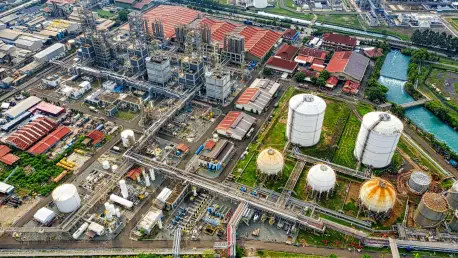
Navigating the Complexities of Global Oil Markets In a world where geopolitical tensions frequently threaten to upend energy markets, the resilience of oil prices stands out as a remarkable phenomenon that defies expectations of volatility. Despite sanctions targeting major oil producers like

Picture a Britain where the grid hums with clean, reliable power, unshackled from fossil fuels, even on the darkest, windless winter days, as TerraPower, a nuclear innovation company backed by Bill Gates, steps into the UK energy arena with its groundbreaking Natrium reactor. Recently submitted for

Market Snapshot: Unpacking the Oil Price Decline In a striking turn of events, oil prices have stumbled, with Brent crude futures dipping by 0.5% to $65.62 per barrel and U.S. West Texas Intermediate (WTI) crude futures easing by 0.3% to $61.31 per barrel, raising pressing questions about the

What happens when a vital energy lifeline is suddenly severed in a region desperate for stability, and how will the affected nations navigate the fallout? In the heart of the Caribbean, a dramatic standoff unfolds as Venezuela abruptly suspends critical energy agreements with Trinidad and Tobago,

As the global energy landscape shifts under the weight of geopolitical tensions and sanctions, few understand the intricacies better than Christopher Hailstone. With a storied career in energy management, renewable energy, and electricity delivery, Christopher is our go-to Utilities expert,

As the global landscape of international trade and sanctions continues to evolve, few issues are as pressing as the European Union's latest measures targeting Chinese entities in connection with Russia. Today, we’re joined by Christopher Hailstone, a seasoned expert in energy management and